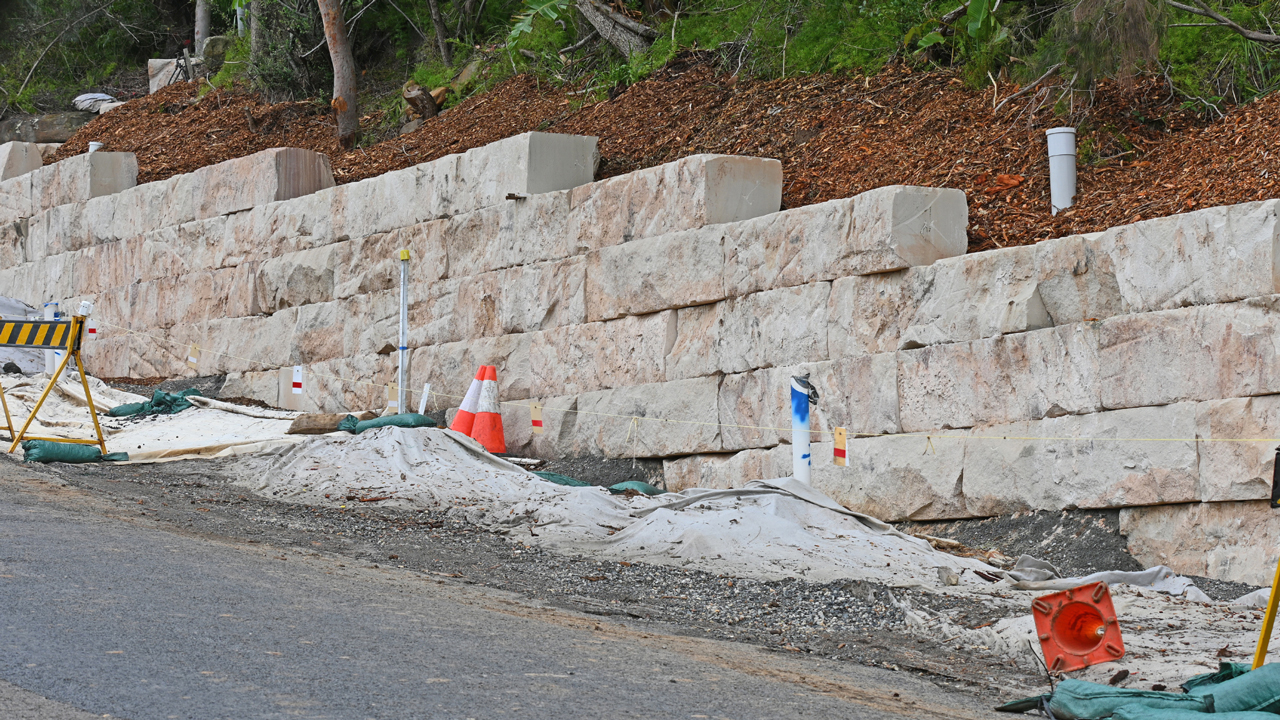
Effective drainage is the unsung hero of a well-constructed retaining wall, ensuring its longevity and the preservation of your beautiful landscape. When it comes to retaining wallsRetaining walls are structures designed to hold back soil and prevent erosion in landscapes with var..., proper drainage is not just a feature; it's a necessity that safeguards against issues like soil erosion, water buildup, and compromised structural integrity.
A retaining wall's primary function is to hold back soil and create usable space. However, without adequate drainage, several problems can arise. Water pressure behind the wall, especially after rainfall, can lead to soil erosion, pushing soil particles through the wall structure and compromising its stability.
Additionally, poor drainage can result in the accumulation of water behind the wall, exerting additional pressure that may lead to structural issues.
During the construction process of a retaining wall, proper drainage should be a fundamental consideration. Incorporating drainage features, such as perforated pipes and efficient drainage plans, ensures that water doesn't build up behind the wall, preventing issues like soil erosion and potential damage to the wall structure.
The type of soil in your yard plays a crucial role in determining the effectiveness of drainage. Permeable soils, like sandy soils, allow water to drain more easily, reducing the risk of water buildup. In contrast, compacted soils, such as clayClay is a natural, fine-grained soil material that becomes pliable when wet and hardens when dried o..., may require additional drainage measures to prevent water retention.
One effective drainage solution for retaining walls is the use of perforated drain pipes. These pipes are designed to allow water to enter through small holes, preventing water buildup behind the wall.
Properly installed, these pipes provide an outlet for excess water, mitigating the risk of soil erosion and structural damage.
Effective drainage starts with proper design. Drainage plans should consider the slope of the terrain, the type of soil, and the expected water pressure.
Designing with inches of space for drainage features, such as gravelGravel consists of small, loose, rounded or angular stones, typically ranging in size from a few mil... backfill behind the wall, enhances water flow and prevents soil particles from clogging drainage pathways.
Improper drainage can lead to various issues, impacting both the functionality and aesthetics of your retaining wall. Poor drainage can result in unsightly water stains, mold growth, and even the shifting of the wall structure over time. These issues not only compromise the visual appeal of your yard but also pose risks to the wall's structural integrity.
Selecting the correct drainage material is critical for the effectiveness of the drainage system. From the type of perforated drain pipe to the choice of gravel for backfill, each component plays a crucial role in maintaining proper water flow and preventing potential issues.
A well-designed and properly drained retaining wall contributes to the overall beauty of your yard. Beyond its functional role, a retaining wall with effective drainage ensures that your outdoor space remains visually appealing and structurally sound for years to come.
In cases where the natural drainage of your yard is not sufficient, additional drainage solutions may be necessary. This could include the installation of French drainsFrench drains are a type of subsurface drainage system designed to redirect water away from problem ..., which are trenches filled with gravel or rock that redirect water away from the wall, preventing water buildup and potential damage.
There are different types of drainage systems, each suited to specific conditions and requirements. Understanding these drainage types ensures that you choose the most effective solution for your retaining wall:
If you're dealing with a retaining wall that was constructed without proper drainage, all hope is not lost. It's possible to retrofit drainage solutions to correct the issue. This might involve adding drainage features or improving existing ones to ensure efficient water flow.
For complex projects or challenging terrains, seeking the expertise of a professional hardscapingHardscaping refers to the non-living elements of landscaping, such as stone, brick, concrete, wood, ... contractor is advisable.
A skilled contractor can assess the unique characteristics of your landscape, recommend suitable drainage solutions, and ensure that the design aligns with the specific requirements of your retaining wall project.
Investing time and effort into proper drainage for your retaining wall is an investment in the long-term health and aesthetics of your landscape.
By addressing drainage issues during the design and construction phases, you're not only preventing potential problems but also preserving the beauty of your yard for years to come.
One of the primary functions of effective drainage in retaining walls is soil preservation. Improper drainage can lead to soil erosion, compromising the stability of the wall and the surrounding landscape.
Adequate drainage mitigates this risk by ensuring that water doesn't accumulate behind the wall, carrying away vital soil particles.
Ready to transform your outdoor space into a haven of beauty and resilience? At West Hills Masonry, we specialize in creating retaining walls that stand the test of time, blending aesthetic appeal with structural integrity.
Our team is dedicated to implementing comprehensive drainage solutions, ensuring the longevity of your retaining walls and the health of your landscape. Discover the art of effective drainage in soil preservation, protecting your investment, and maintaining the natural beauty of your yard.
Trust West Hills Masonry to guide you through the process, from crafting drainage plans to addressing improper drainage in existing structures. Elevate your landscape with our expertise—contact us today at 714-519-5009 and let's embark on a journey to nurture the full potential of your outdoor space!
 Carlos Gonzales
Carlos GonzalesLocations We Serve
Schedule A Consultation